I’m not going to sugar coat this for you. I struggled horribly with my 2-year-old not listening. As a mom who researches things like how to make kids listen and how to be a positive parent to a strong willed child, the twos about did me in.
Yes, really. (That’s why I started researching why parents yell…)
But here’s the real shocker…
I spent eight years working as a critical care nurse, where my career was built around surviving high intensity situations.
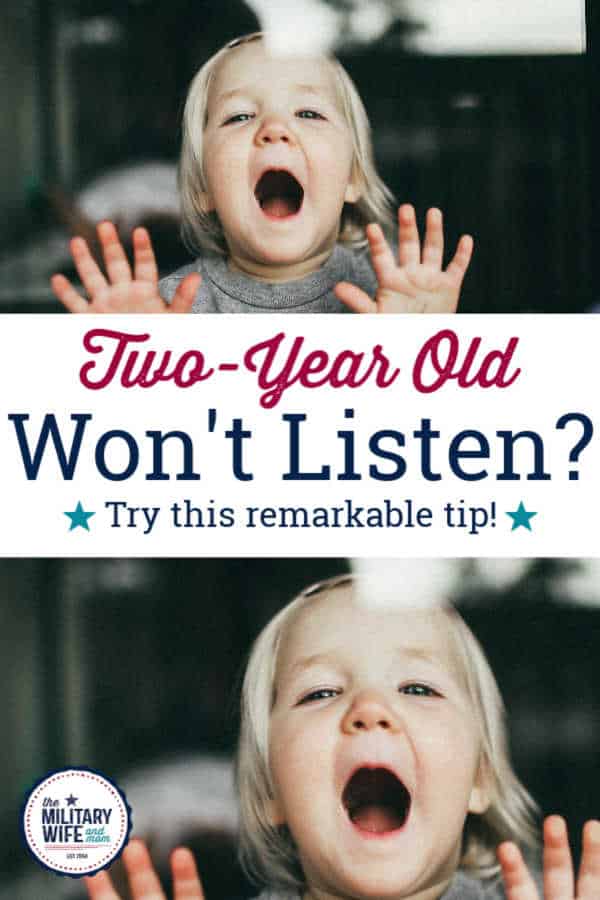
post contains affiliate links
I used to code patients, do CPR, push drugs, shock people, and simultaneously run multiple medications and machines while never breaking one bead of sweat.
Then I had a 2-year-old not listening.
And I learned something profound. Parenting a strong willed toddler was far harder than my hardest day in the ICU.
The twos are hard for a reason.
Just to be clear, a two-year-old not listening is not because a two-year-old is terrible. Teaching a two-year-old to listen is hard because children are experiencing the greatest brain development of their life.
Simply put, from age birth to three, your child’s brain produces 700 new neural connections every second.
I’ll let that digest for a moment. Because when I first read that I about sprayed coffee all over my laptop.
With 700 new neural connections every second, is it really a wonder why teaching toddlers to listen is such a common struggle among parents?
There is something to help.
I used to get in all these non-sensical arguments with my 2-year old, and it would go something like this…
Him: I want toast.
Me: Sure buddy (gives toast)
Him: I don’t want toast (falls to the floor)
Me: What? Why? What’s wrong with the toast?
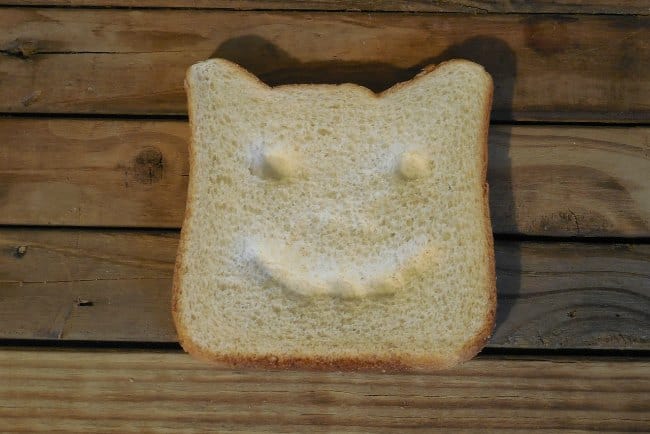
And right there is where I had it all wrong.
I was asking logical questions with the mindset that my 2-year-old’s thoughts were logical, when in fact, they were not.
When you have a 2-year-old not listening, a large part (like 90 percent) is because their behavior is driven by the emotional brain, not the logical brain.
Which means, your 2-year-old is having illogical and impulsive thoughts driven by emotion–all day long.
This is normal and expected because–woah–700 new neurons a second.
Here’s a simple solution.
Instead asking questions, meet your child exactly where they are in that moment. Girl scout’s honor. For real. Skip the questions. Toddlers don’t understand WHY they feel the way they do. They just feel it, and they gotta get it all out there.
This is why when you ask 2-year-olds “What’s wrong?” or “Why did you do that?” or “Why are you crying?”, they respond with crying, silence, repeating what they just told you, yelling or some other random response.
Your 2-year-old does not know the answer because his actions are based on emotional impulses, not logic.
He doesn’t know why he doesn’t want toast anymore.
He doesn’t know what’s wrong about the toast.
All he knows is that there is an overwhelming impulse inside of his brain telling him to, “Say no to toast!”
Instead…acknowledge.
No matter how illogical or impulsive your child is acting, acknowledge what they are thinking, doing and feeling.
Stay calm. Embrace it. Meet your child right there at the emotion.
“Ahhh…You don’t want the toast. I see.”
Then, wait. This is referred to by teachers as “wait time.” Or as I like to call it “the great parenting pause.”
This is where you pause for a good 3-7 seconds (or much longer) while your child has a chance to process.
Related: 7 Things That Will Change How You Try to Stop a Temper Tantrum
This is where the magic happens.
I quit fighting with him about the toast, and instead, I put my energy to good use and drank some coffee.
(I also started using these printable routine cards and they helped a TON with cooperation.)

Each time he said something, I acknowledged what he was thinking and calmly let him know about my boundary.
“You really don’t want that toast. I see. You can have the toast for breakfast or you can eat later at snack time.”
Then I paused and took a sip of coffee (Okay…several large gulps).
Low and behold….
Exactly 7 minutes later, he came back and decided he was ready to eat the toast.
It was a toast and a toddler listening miracle!
Not only did I save myself a 7-minute dogfight over toast, he ate the toast.
If you are struggling with a 2-year-old not listening, remember this: When 700 new neurons are growing each second, do not hesitate to avoid questions and embrace acknowledgement. Because all your child wants is for you to know that he doesn’t want toast in that moment. Who knew.
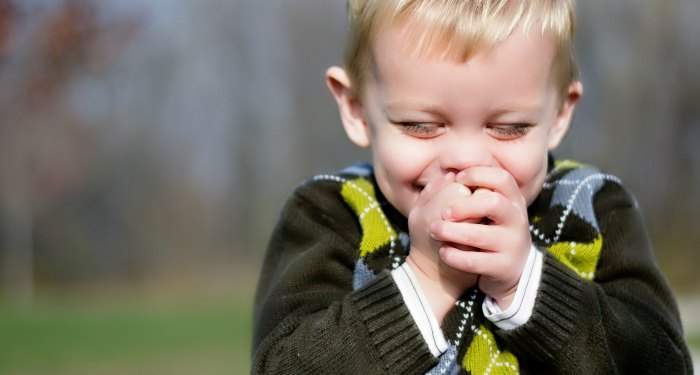
Print this free toddler listening checklist.
This post comes with a free printable checklist to help with toddler listening. I always have the hardest time remembering these phrases. This printable simplifies it!
Here is a sneak preview…
Download Your Free Printable
- Download the checklist. You’ll get the printable, plus join 37,000+ parents who receive my weekly parenting tips and ideas!
- Print. Any paper will do the trick, but card stock
would be ideal.
- Place it on your refrigerator. Check things off as you go and don’t forget a thing!
Want more posts on parenting?
- How to Handle Back Talk and Disrespect Like a Parenting Warrior
- 3-Year-Old Not Listening? Use This Simple Strategy
- Dear Moms of Wild Toddlers
- The Real Reason Why Kids Never Want to Sleep
- 2 Year-Old Sleep Schedule That Helps Everyone Get More Sleep
- 10 Empowering Ways to Improve Toddler Listening
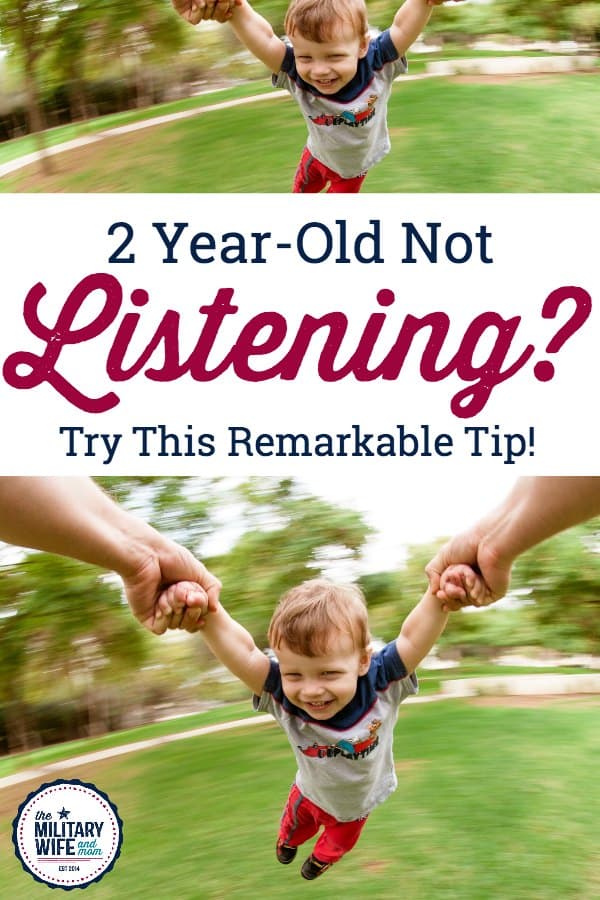
I've created a free email series just for you! If you are struggling with teaching your child to listen, this series will help transform your parenting. Yes, really. I've seen my proven strategies work time and time again for parents. I know it can work for you too.
After taking my free email series, you will:
- Learn simple, yet highly effective listening strategies
- Experience a stronger connection with your child
- Enjoy more peaceful parenting days
- Gain more cooperation from your child

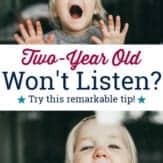
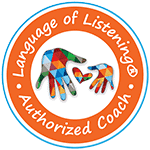
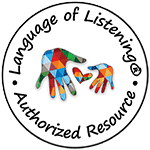
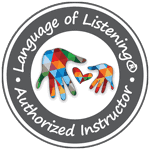
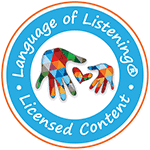








Beautiful article thanks so much
The best article I have ever read ! Thank you !
” SMILE. ”
It’s akways nice to hear from someone who loves children as much as I do open the eyes to young moms so they learn and understand their childs behavior !
Two thumbs up !
This is fantastic! It seems so simple but way too easy to overlook. I can’t wait to implement this in my life as my toddler grows. Thank you for such sensible advice!
Thanks for the tips! My littlest isn’t 2 yet, but, having been through this once with her older brother, I’m aware of how tough it can be and trying to get a good grasp on tips before it’s an actual issue! Hopefully it’s like riding a bike! 🙂
If all your child does is cry about toast, then you are very blessed.
What about the 2 year old that won’t listen at all? That pushes and hits everyone? That throws tablets at a younger child. That hits people with whatever item he finds. That screams and throws tantrums just hearing the word no. Ignoring him does nothing.
This is my wild child girlie
She take no poo and doesn’t care too
Hits screams laughs if someone in pain pulls hair
Leaves a mark on peoples faces.
Never had this with my first hes 7 years now…
Did you find any tips?
That is when you say I understand you want icecream (set boundaries, ice is only given if you’re good and AFTER dinner or lunch etc as a treat) so when you’re a good kiddo today after lunch We can have icecream then. I understand you want to go outside but we can’t go outside until(set boundary) why don’t we play in here until we can go outside!? How about playing with toys or I turn on 🎬, leave toy there or movie there. If you want to do that let me know. Then pause.
Hello, my name is Louise and I live in Australia. Now as a Grandma to a 2 year old, I feel like I’ve got the chance to get ‘it’ right….thank you for tips. Ip
Thanks for the article. Great article. Glad to read this article. I will follow and share to my friends.
Thank you for the great article Lauren. A fellow nurse here, but a first time mom to a 22-month-old. The tantrums are already starting. I will try implementing your method. Thanks so much!
Thank u…I needed this for my 2 year old son..
Thank you…I needed this for my 2 year old son…